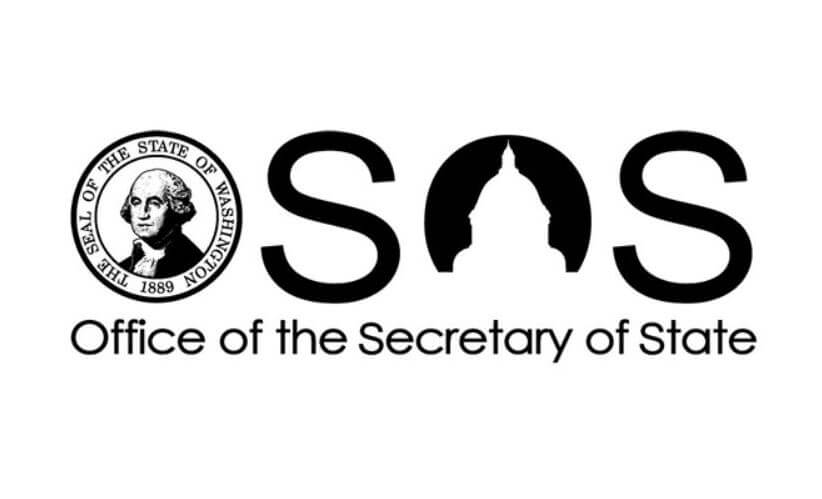The deadline to collect the 259,622 signatures needed for an initiative to make it to the November ballot was Friday. While Washington’s most prominent initiative proposer, Tim Eyman, went zero for eleven this year, here is a summary of the initiatives that turned in the numbers to be verified, and couple interesting ones that didn’t.

The Morning Wire: Keeping you informed on politics, policies, and personalities of Washington State.
Three that made it…
- I-1631 – Carbon Emissions Fee and Revenue Allocation
This version of the carbon pricing proposal would charge a $15 per metric ton carbon emissions fee beginning on January 1, 2020. The fee would increase by $2 per metric ton each year until the state meets its 2035 greenhouse gas reduction goals. Revenue from the fee would go into two funds: (1) a fund for air quality and energy programs and projects and (2) a fund for water quality and forest health projects. Unlike prior carbon pricing attempts, I-1631 structures the charges as a “fee,” which limits the uses of revenues to addressing carbon/pollution issues, not broader issues like rural economic development or tax reform.
Supporters of the initiative are lead by the Yes on I-1631 campaign and include Congresswoman Pramila Jayapal , Governor Jay Inslee, and a coalition of Native American tribes, labor unions, Democratic organizations, and environmental groups and have raised over $2.3 million in funds. The opposition No on I-1631 campaign (sponsored by the Western States Petroleum Assn.) has raised far less with only $73.564. This is Washington’s third try at a carbon pricing scheme after I-732 failed last year and SB 6203 this year in the legislature.
- I-1634 – Washington Taxes on Groceries Initiative
This big money initiative is sponsored by Yes – to Affordable Groceries, but don’t let the title of the group fool you, it is actually backed by Coca-Cola, Pepsi Co., Dr. Pepper/Snapple, and the Washington Food Industry Association. The group has raised over $4 million in support of the measure that would prohibit local government entities from imposing any new tax, fee, or other assessment on grocery items, but would not prevent the state itself from taxing groceries.
Pro-initiative groups argue the soda and food taxes are regressive and increase food prices. However, opposition groups, like the American Heart Association, Childhood Obesity Prevention Coalition, and the Anti-Hunger and Nutrition Coalition, contend I-1634 is a thinly veiled attempt to prevent local jurisdictions from passing their own soda taxes designed to curb consumption of sugary beverages like the one passed by Seattle last fall. Expect a hard fought battle from the soda and grocery lobby as they attempt to protect their market share across the state.
- I-1639 – Washington Background Checks, Waiting Periods, Age Requirements and Storage Requirements for Firearms Initiative
Initiative 1639 is the initiative response to SB 6620 which passed out of the Senate Ways and Means committee last session, but couldn’t gain enough traction to move further and stalled. The measure, supported by the Alliance for Gun Responsibility and several high profile donors, would raise the age for buying semi-automatic weapons to 21, apply the same background checks required to purchase handguns to semi-automatic weapons, require secure gun storage with criminal penalties for unauthorized use, and require potential purchasers to attend a firearms safety program.
In May opposition groups filed challenges to the initiative’s title that delayed signature gathering, leaving a three week window to collect the required 260,000 signatures. However, pro- I-1639 groups seemed to have little trouble rounding up a reported 367,000 by Friday’s deadline. Early last week more legal challenges were filed claiming deficiencies in the signature gathering campaign and other irregularities in how the measure is drafted, but were promptly dismissed by the courts. Some have argued that the legal challenges are a last ditch effort to kill the measure that has overwhelming popular voter support.
Two that didn’t…
- I-1600 – Washington Universal Healthcare Coverage and Funding through Payroll, Income, and Capital Gains Taxes Initiative
This was a stab at creating a single-payer health care system lead by Whole Washington. The group is a coalition of health care professionals, activists, and citizens, but was not able to muster many signatures or interest from the media. The measure proposed funding a health care trust fund with an 8.5 per cent payroll tax, one of the largest tax increases in Washington history. But supporters also contended it would provide the greatest relief from costs to residents and businesses ever. In the end, supporters raised a meager $80 thousand dollars and were not able garner enough support to make it to November.
- I–1608 – Washington Public Employer Collective Bargaining Sessions Open to Public Initiative
Initiative 1608 would have add new sections to Washington’s Public Meetings Act and Public Records Act to make collective bargaining more transparent by permitting the public attendance and recording of collective bargaining meetings, requiring public employers to publish bargaining proposals, and creating a library of negotiated collective bargaining agreements. Supporters, including the Washington Association of Businesses and the Washington Policy Center, argued that transparency would benefit the public and union members who would gain greater insight into proposals being negotiated on behalf of workers.
Your support matters.
Public service journalism is important today as ever. If you get something from our coverage, please consider making a donation to support our work. Thanks for reading our stuff.



